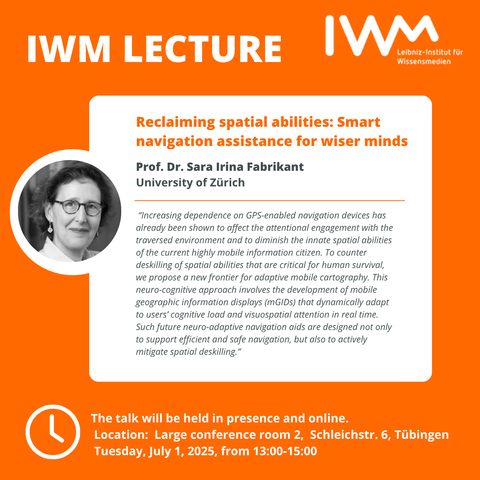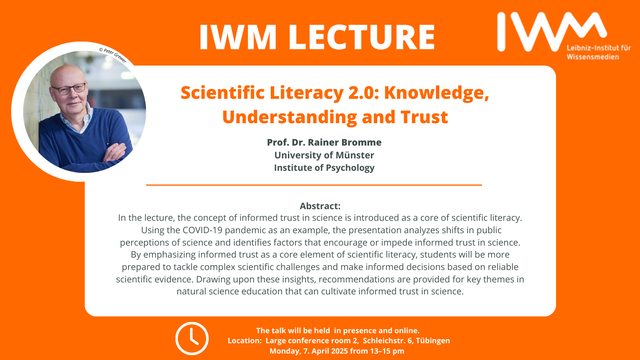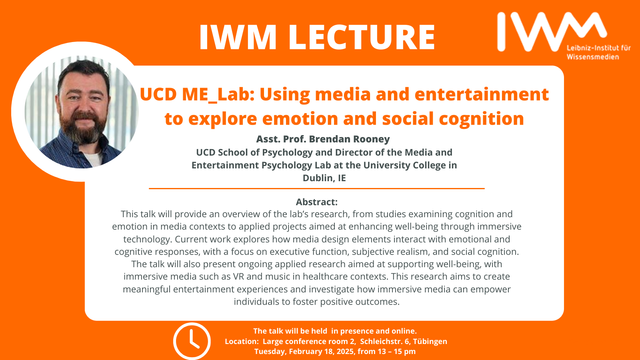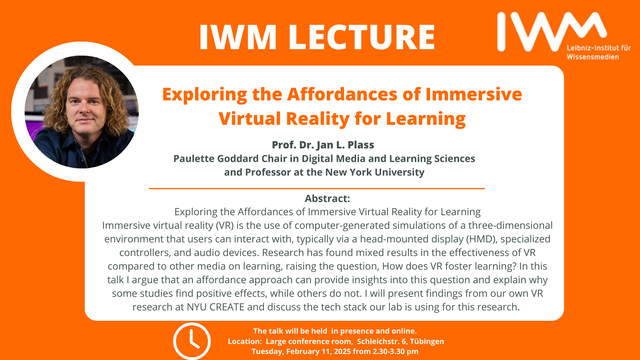📢 #IWMLecture: "Reclaiming spatial abilities: Smart navigation assistance for wiser minds" by Sara Irina Fabrikant on 1.7. 2025, 13:00-15:00, large conference room (IWM / Schleichstr. 6, Tübingen). Everyone interested is welcome to join. ✔️
Participation online: 📧 redaktion(at)iwm-tuebingen.de
We are looking forward to seeing many of you! 😊
#EverydayMedia #digitalMedia #navigation



